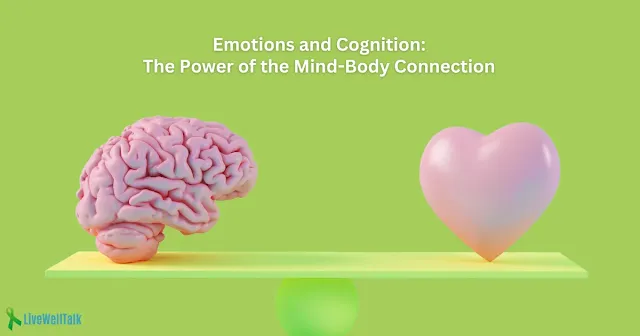Imagine a world where emotions and thinking are separate islands, never meeting or interacting. It's a strange thought, right? Luckily, in the beautiful tapestry of human experience, emotions and cognition are not just neighbors; they're more like dance partners. They sway, twirl, and occasionally tango through our lives, adding depth, color, and rhythm to our journey.
Emotions and Cognition: Navigating the Heart and Mind
Close your eyes for a moment and imagine life as a painting. A painting where emotions are the vibrant hues that splash across the canvas, and cognition is the steady hand that brings intricate details to life. These two, emotions and cognition, are the dynamic duo that make our human experience so wonderfully complex and beautifully human.
Emotions: The Paintbrush of Experience
At the heart of this intricate relationship are emotions – those intangible sensations that make life feel like a kaleidoscope of feelings. Imagine waking up on your birthday to a room filled with balloons, surrounded by your loved ones' smiling faces. That warm, fuzzy feeling in your chest? That's an emotion.
These emotions are like signposts, giving us insight into how we're experiencing the world. When you meet someone new and feel an instant connection, it's your emotions whispering, "Hey, this person might be important!" Similarly, when something doesn't feel right, your emotions raise a caution flag.
Emotions Shaping Our Thinking
Now, here's where things get intriguing. Emotions aren't just passengers in the car of our minds; they're the co-drivers, affecting the journey in numerous ways.
Ever noticed how a bad mood can make everything seem bleak? Emotions have the power to influence where our attention goes. When you're feeling happy, you're more likely to notice the vibrant flowers on your walk, whereas sadness might make you focus on the gray clouds.
Think of your mind as a detective, constantly piecing together clues to form memories. Emotions are like colorful stickers that make some memories stand out more than others. That's why you're more likely to remember the details of a surprise party because the emotions you felt during that moment glued the memory in place.
Emotions: The Heartfelt Decision-Makers
Emotions also play a key role in decision-making. Imagine you have two job offers – one at a prestigious company and another at a startup. If you're feeling excited about the challenges of a startup, you might lean towards that option. On the other hand, if you're nervous about uncertainty, the established company might seem more appealing. Emotions often nudge us towards decisions that align with how we're feeling.
And when it comes to problem-solving, emotions can either be helpers or hurdles. Think of a time when stress had you feeling like your brain was in a fog. It becomes tough to untangle complex problems when your emotions are like a loud siren in the background.
Cognition: The Navigator of Emotions
Now, let's meet cognition – the thinking superhero of our minds. Cognition helps us understand, learn, and make sense of the world. It's the reason you can figure out how to use a new app or plan a route to your favorite café.
But cognition doesn't just operate in isolation. It holds a special key – the power to change how we feel. Say you're anxious about giving a presentation. By using cognitive tools like deep breathing or positive self-talk, you can calm those jitters.
Cognition Shapes Emotional Landscapes
Cognition doesn't just stop at calming emotions; it helps frame how we experience them. Imagine you're about to go on a roller coaster. If you think of it as a thrilling adventure, you're more likely to feel excitement. But if you focus on potential danger, fear might take the front seat. Our thoughts can shift the lens through which we view emotions.
The Dance of Well-being
Picture emotions and cognition as partners in a dance. When they move in harmony, life feels like a beautifully choreographed routine. Emotions add a burst of color, and cognition guides the steps. But, like any dance, it takes practice to sync up perfectly.
When the dance falters, seeking help is a wise move. Just like a dance instructor fine-tunes your moves, a therapist can help harmonize your emotions and cognition. They provide tools to understand emotions, soothe the mind, and make decisions that align with your values.
In Harmony, We Thrive
As we tread the path of life, emotions and cognition continue their intricate dance. They shape our experiences, color our memories, and influence our choices. It's a journey where the heart and mind aren't in competition; they're partners that create the symphony of our existence.
So, when emotions surge and thoughts whirl, remember that you're participating in the most extraordinary dance – the dance of being human. And if ever you stumble or lose the rhythm, there's a helping hand just a conversation away, ready to guide you back to the graceful waltz of emotions and cognition.


Comments
Post a Comment